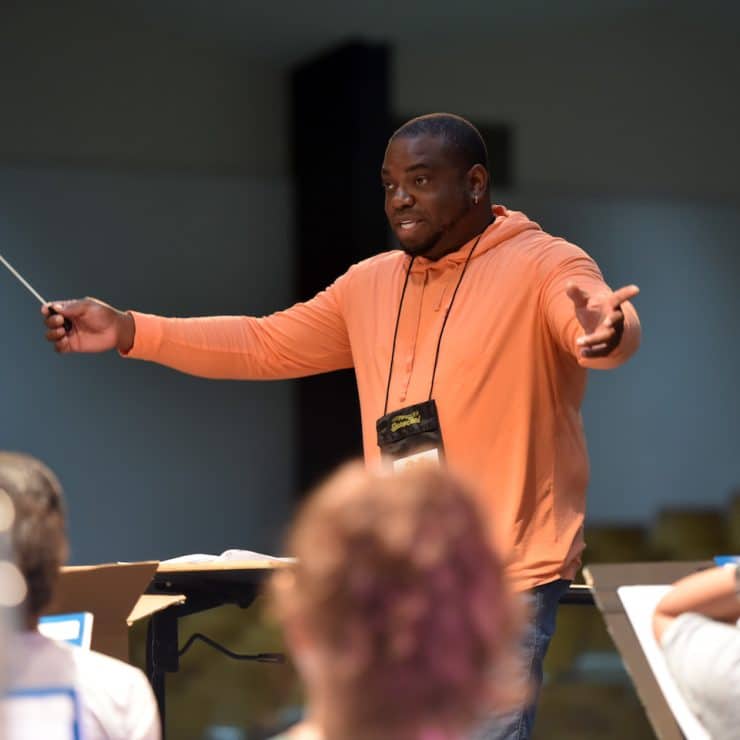
Division of Fine & Performing Arts
The Division of Fine and Performing Arts at Methodist University includes programs in performance, music education, composition, arts management, and theater, and reflects the rigorous standards of a flagship institution, while offering an intimate environment for students to train as scholars, practitioners, and educators in the arts. Our courses integrate creativity and critical inquiry and emphasize artistic excellence, interdisciplinary learning, and collaborative performances.
Goals
- We seek to ensure that all students at Methodist University have an opportunity to investigate, collaborate, and experience the arts. Additionally, we endeavor to prepare students completing arts-focused academic majors, minors, and concentrations to:
- Compete at the highest level for employment within the arts community
- Enter graduate school fully prepared both artistically and academically
Academic Programs
Performing Opportunities
Division Head
Scott Marosek, D.M.A.
Division Head, Fine & Performing Arts; Union-Zukowski Professor of Music
